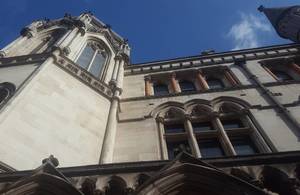Response to TES story about centre assessment grades
News story
A statement about the role of centre judgements in this summer’s awarding.

Although exams and assessments have been cancelled, most students will still be able to progress to further study or employment as planned with results which carry the same value as any other year. We know teachers worked extremely hard to deliver this year’s arrangements and the majority of grades students receive will be the same as their centre’s judgements – reflecting the skills, professionalism and integrity of those involved.
Final grades this summer will be calculated using both centre assessment grades and a rank order of students provided by the centre. Centre judgements will then be moderated by exam boards, to make sure the standard is consistent between schools and colleges. It is wrong to conclude that centre judgements will be adjusted simply because they have gone through the moderation process. There will only be adjustments where they are needed to ensure fairness for students.
Centres with lower entries, overall or in particular subjects, will have more weight placed on their centre judgements because that is the more reliable source of evidence in these circumstances. We will publish full details of the moderation process, including details for low entries, next week.
Where centres have evidence of an error, or that the moderation process did not produce reliable results for their students, they may appeal.
Results for students will almost always be broadly in line with centres’ and teachers’ expectations, and the awarding process has been designed to allow leniency where this can be done without undermining fairness.
For more information about awarding this year, read our latest blog.
Published 7 August 2020

